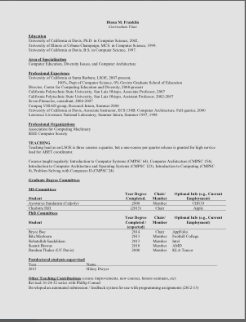Research
I am interested in how students learn computer science concepts,
especially at the elementary school level. In particular, I
explore how to create curriculum and development environments
that can reach a broad spectrum of learners, including
underrepresented ethnic and gender minorities and students
struggling academically. My research is
housed in the CANON (Computing for
ANyONe) Research Lab. I am current leading three projects,
spanning learners from pre-K through college.
I am not currently recruiting graduate students.
active projects
-
Scratch Encore
explores how to create intermediate Scratch curriculum when
equity is a level-1 design constraint, equal to learning
outcomes. Our goal is to provide teachers with the tools to
quickly customize Scratch projects for their classrooms using
Conjuror If you are interested
in being in our study, check it out!
-
Building on our work creating
quantum computing learning resources (
zines,
activities,
and a 2-week HS module),
we are exploring age-appropriate learning goals for middle-school learners
and how to convey them through game play. We have created an online game
suite, Quander, that integrates
quantum computing concepts into game mechanics in various ways. This is paired
with Collapsing Qubits, our
new card game. We are using these resources to create learning trajectories of
basic QIS concepts such as superposition, measurement, and reversibility.
-
TheoryABCs is a new project
with two goals. First, how can we better scaffold the multi-step process
of designing algorithms for each paradigm? Second, to what degree can we increase
engagement, belonging, and learning by creating personalized algorithms word
problems that set the same technical problem into settings chosen by the learner?
artifacts produced
-
Quander online game
suite that integrates quantum computing concepts into various games.
-
Collapsing Qubits -
a card game with QIS-specific cards and game mechanics.
-
Scratch Act 1 - Introductory Scratch programming.
Four modules consisting of 10 hours of instruction.
Uses same pedagogical approach as Scratch Encore, with
content from SFUSD's Green Workbook, itself a reorganization
and revision of Harvard's Creative Computing Curriculum.
-
Scratch Encore - Intermediate Scratch programming.
Modules 1-13 now released, and there are now three strands
that teachers can choose from for modules 1-6.
-
CT Reading List for preK-2nd grade.
-
Robot Turtles boards to make the Robot Turtles
preK-1st grade board game more amenable to classroom use.
-
Action Fractions - Integrated fractions + CT activities
for 3rd and 4th grade.
older projects
Learning Trajectories for
Everyday Computing is a multi-institution (UChicago, UF,
UIC) research effort
exploring integration of computational thinking and mathematics
in elementary school. After creating learning trajectories for
Sequence,
Repetition, Conditionals, and
Decomposition, and
Debugging. We collaboratively designed
Action Fractions, a sequence of integrated
Fractions + CT activities for 3rd and 4th grades.
Comprehending Code
focuses on learning strategies that students, especially
students with disabilities, English language learners, and
those struggling academically for any other reason. We
have developed TIPP&SEE, a learning strategy that teaches
students how to learn by example within Scratch projects.
In addition, we have developed
resources for Robot Turtles to make it more accessible to
students in a classroom setting and to connect it more closely
to Scratch programming. Finally, we have developed a Scratch
Charades games that has students act out Scratch scripts before
encountering the complicated programming interface.
DEPICT
Investigating how students learn elementary CT concepts through
visual block-based languages (like Scratch) in upper-elementary
school. This project resulted in 15 publications, a two-year
curriculum, and a development environment that was more
configurable than Scratch. The lessons learned in this program
have now been applied to all of my current projects, and many
of the projects live on in modified forms in the Scratch
Encore curriculum.
Animal Tlatoque
Investigating how to broaden participation in computing through a
multi-disciplinary summer camp. Over three summers, ran camp for
middle school students that combined meso-american culture, endangered
species, art, storytelling, and computer science.

 Crerar Library Bldg, Room 325
Crerar Library Bldg, Room 325